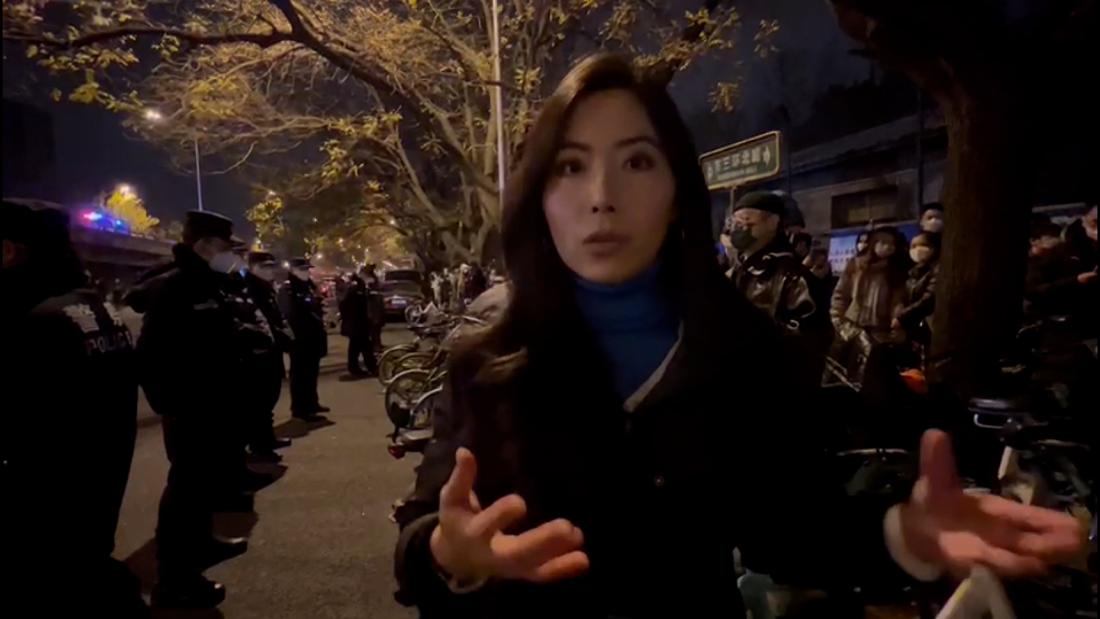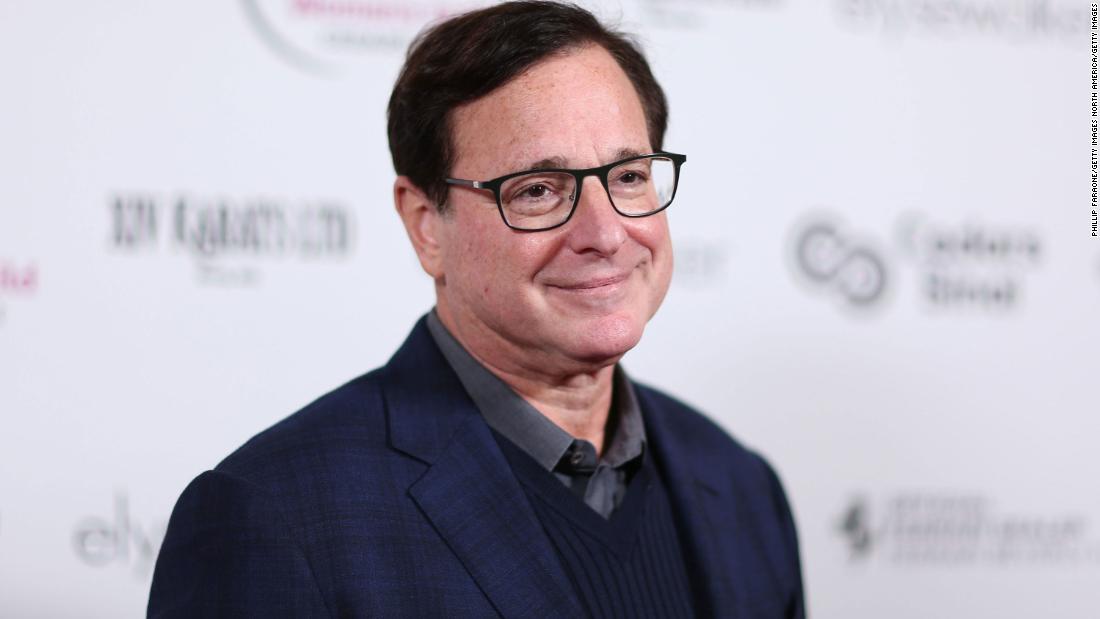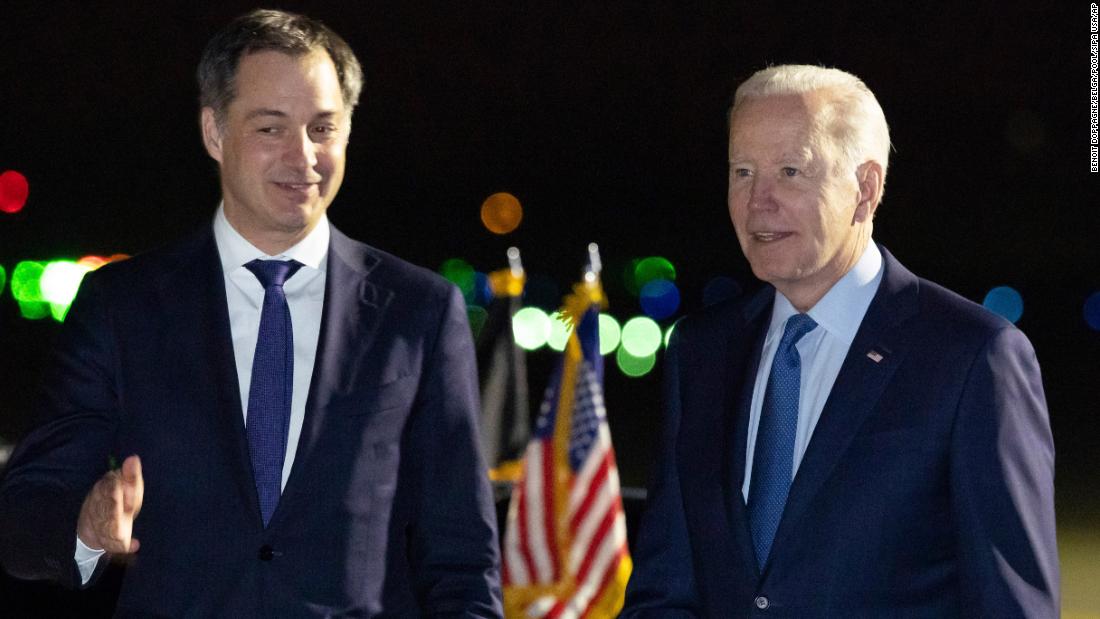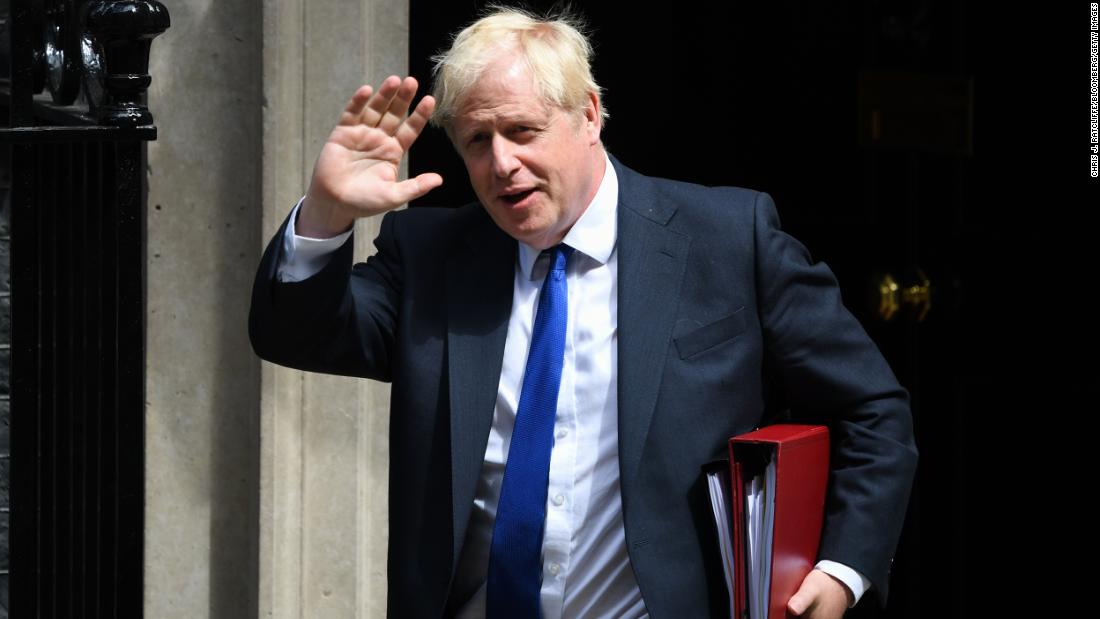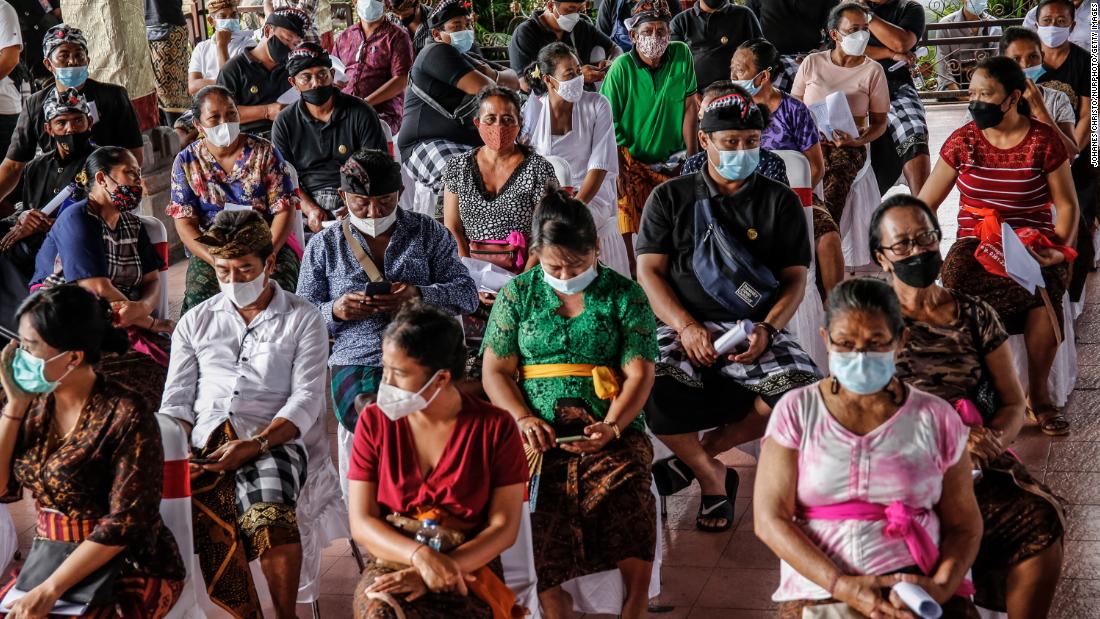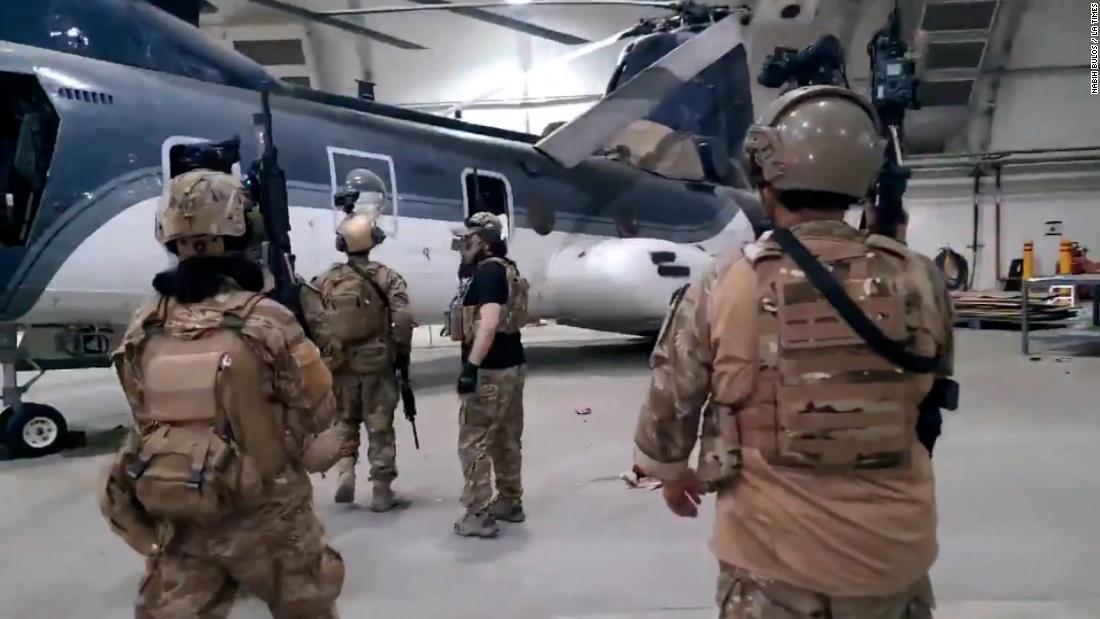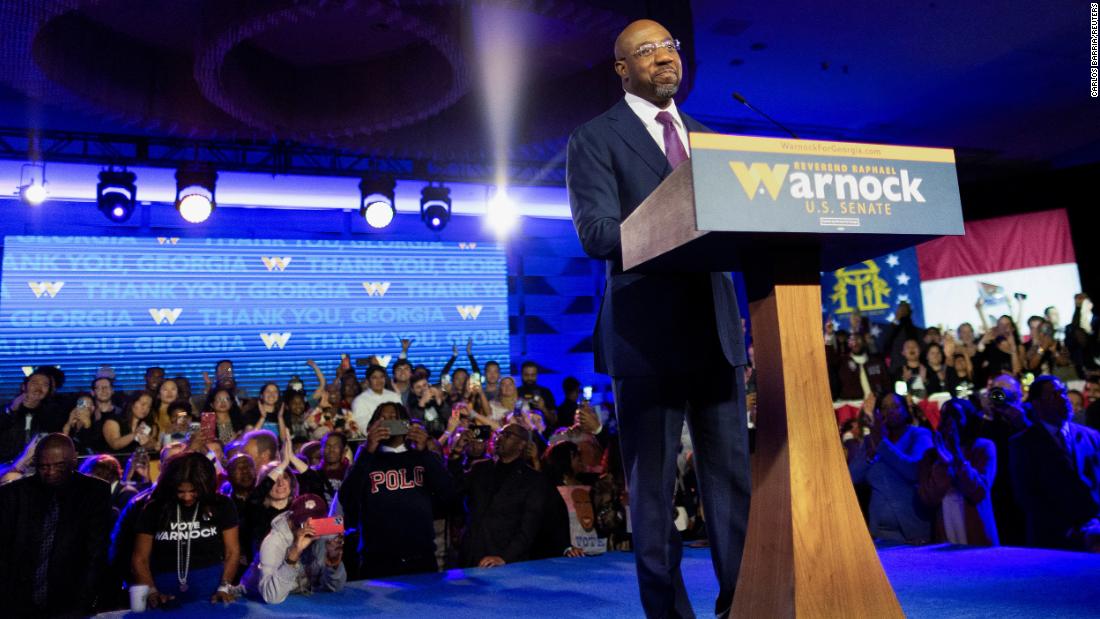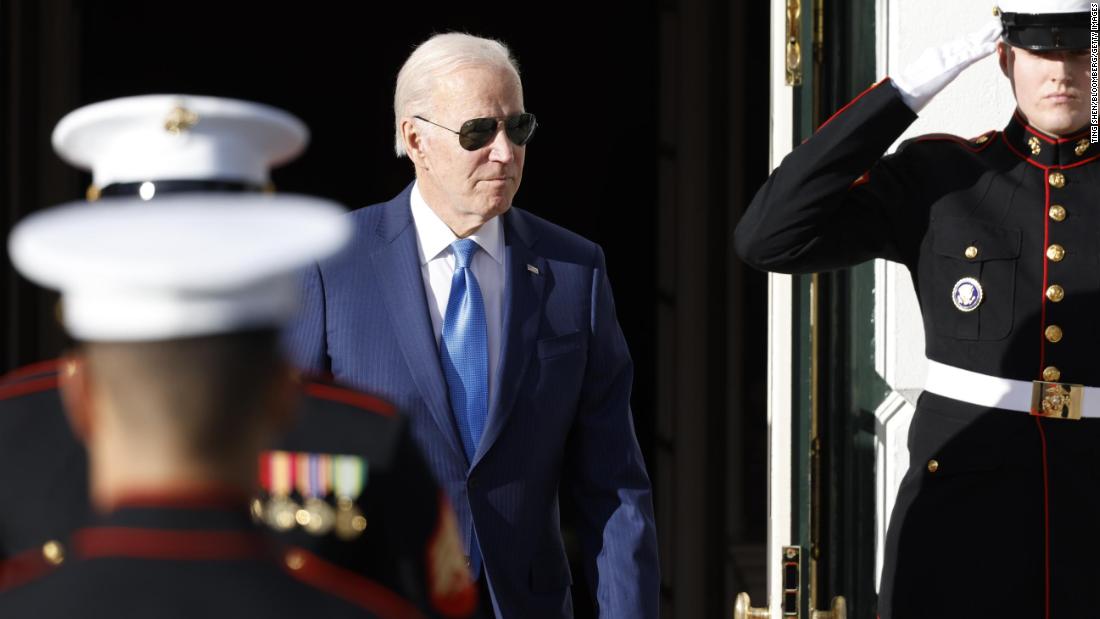The latest on the Russian invasion of Ukraine
1 hr 4 min agoWar will continue until "Russia decides to end it," UN Secretary-General saysFrom CNN’s Hannah Ritchie in Hong KongUN Secretary-General Antonio Guterres speaks to the media members as he arrives in Kyiv, Ukraine on April 27. (Andre Luis Alves/Anadolu Agency/Getty Images)The war in Ukraine will continue until "Russia decides to end it," the United Nations Secretary-General António Guterres told CNN on Wednesday."The war will not end with meetings,” he told CNN's Anderson Cooper during a wide-ranging interview. "The war will end when the Russian Federation decides to end it and when there is – after a ceasefire – a possibility of a serious political agreement. We can have all the meetings but that is not what will end the war."On Tuesday, Guterres traveled to Moscow for a one-on-one meeting with Russian President Vladimir Putin to discuss “proposals for humanitarian assistance and the evacuation of civilians” from conflict zones, namely the besieged city of Mariupol, according to a UN readout of the discussion.As a result, Putin agreed “in principle” to allow the UN and the International Committee for the Red Cross to assist in the evacuation of citizens from the Azovstal plant in Mariupol, the last bastion of Ukrainian defense in the city.Asked what role the UN intended to play in the investigations of war crimes allegedly carried out by Russian forces in the town of Bucha on the outskirts of Kyiv, Guterres reiterated his calls for an "independent investigation."Some context: The Kremlin has denied any involvement in the mass killings of civilians in Ukraine while reiterating baseless claims that images of bodies on the streets of Bucha are "fake."Evidence of mass graves in the towns of Bucha and Borodianka has continued to emerge since early April, following the withdrawal of Russian forces from the Kyiv region.2 hr 14 min agoAnalysis: How the widening war in Ukraine will cost the worldFrom CNN's Stephen CollinsonThe vicious epicenter of the war in Ukraine now rests in the scorched cities of the east and the south. But the conflict's reverberations are widening in a way that will leave few people on Earth -- from small-town America to poverty-stricken Africa -- untouched.Many wars, from World War I to the conflict in Iraq, at first seem certain to end quickly with a short, violent shock. But often they confound such predictions, degenerating into protracted slogs with domino effects that cause distant and far-reaching political, economic and humanitarian effects.Russia's war on Ukraine is following this pattern. After starting with predictions of a blitzkrieg to seize Kyiv two months ago, the war is set to drag on for weeks and months, if not longer.The consequences of a war that lasts even that long are grave. Given Russian President Vladimir Putin's vicious assault on civilians, it will mean many more Ukrainian dead and almost inevitably more atrocities and war crimes. There will be an ever-present danger of the war spilling over and causing a wider conflagration — both militarily and in a growing showdown over Russia's energy exports, which Europe badly needs.Any time two nuclear powers as large as Russia and the US are locked in even an indirect conflict, as is the case given Washington's massive injection of arms into Ukraine, the possibility of a direct confrontation remains.And a longer war means more uncertainty for Western leaders.Read more here:1 hr 20 min agoUN chief says his meeting with Putin was "very useful"Russian President Vladimir Putin meets with UN Secretary General Antonio Guterres in Moscow, on Tuesday. (Russia Foreign Ministry/EyePress News/Reuters)In his face-to-face meeting with Russian President Vladimir Putin, the UN Secretary-General António Guterres said his message was unchanged from the start of the conflict: The Russian invasion is a breach of the UN Charter and it must end as quickly as possible.Guterres, who is expected to meet Ukrainian President Volodymyr Zelensky on Thursday, described his encounter with the Russian leader as “very useful.”The secretary-general told CNN’s Anderson Cooper that he expressed his concerns about the violations of international law, human rights law and the “possibility of war crimes.”Guterres defended the role of the UN in terms of bringing an end to the two-month-old conflict.“The war will not end with meetings,” he said. “The war will end when the Russian Federation decides to end it and when there is – after a ceasefire – a possibility of a serious political agreement. We can have all the meetings but that is not what will end the war.”During the meeting with Putin, Guterres said he discussed the evacuation of civilians from the steel factory encircled in the southern port city of Mariupol. He said Putin agreed “in principle” on the evacuation of civilians and that discussions were taking place between UN officials and Russia’s ministry of defense to hammer out the details. “We are also in contact with the government of Ukrai
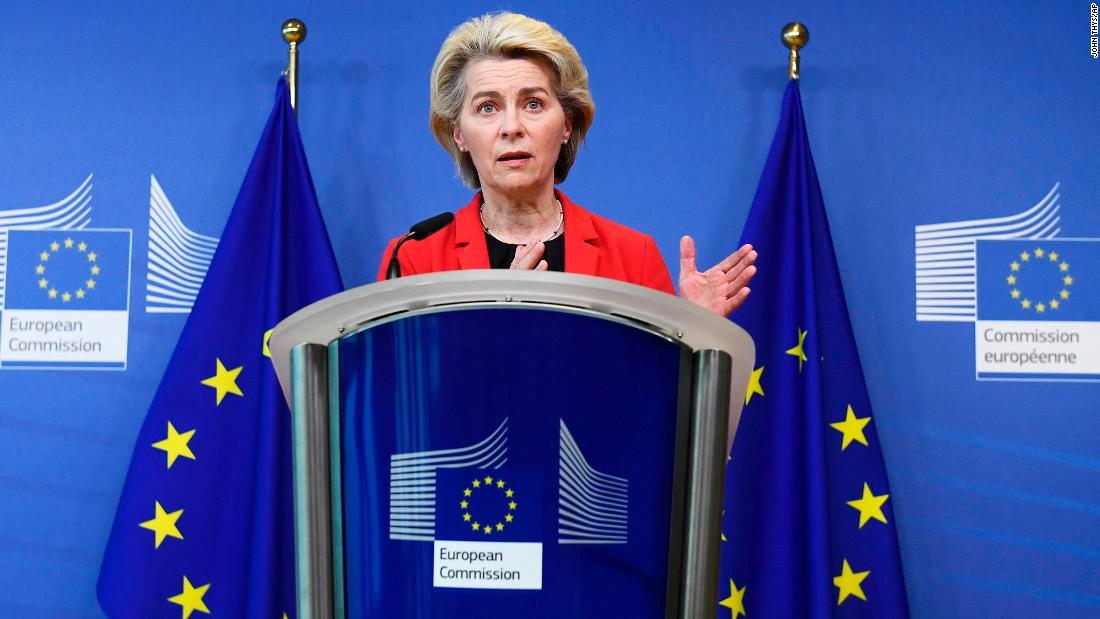
War will continue until "Russia decides to end it," UN Secretary-General says
From CNN’s Hannah Ritchie in Hong Kong
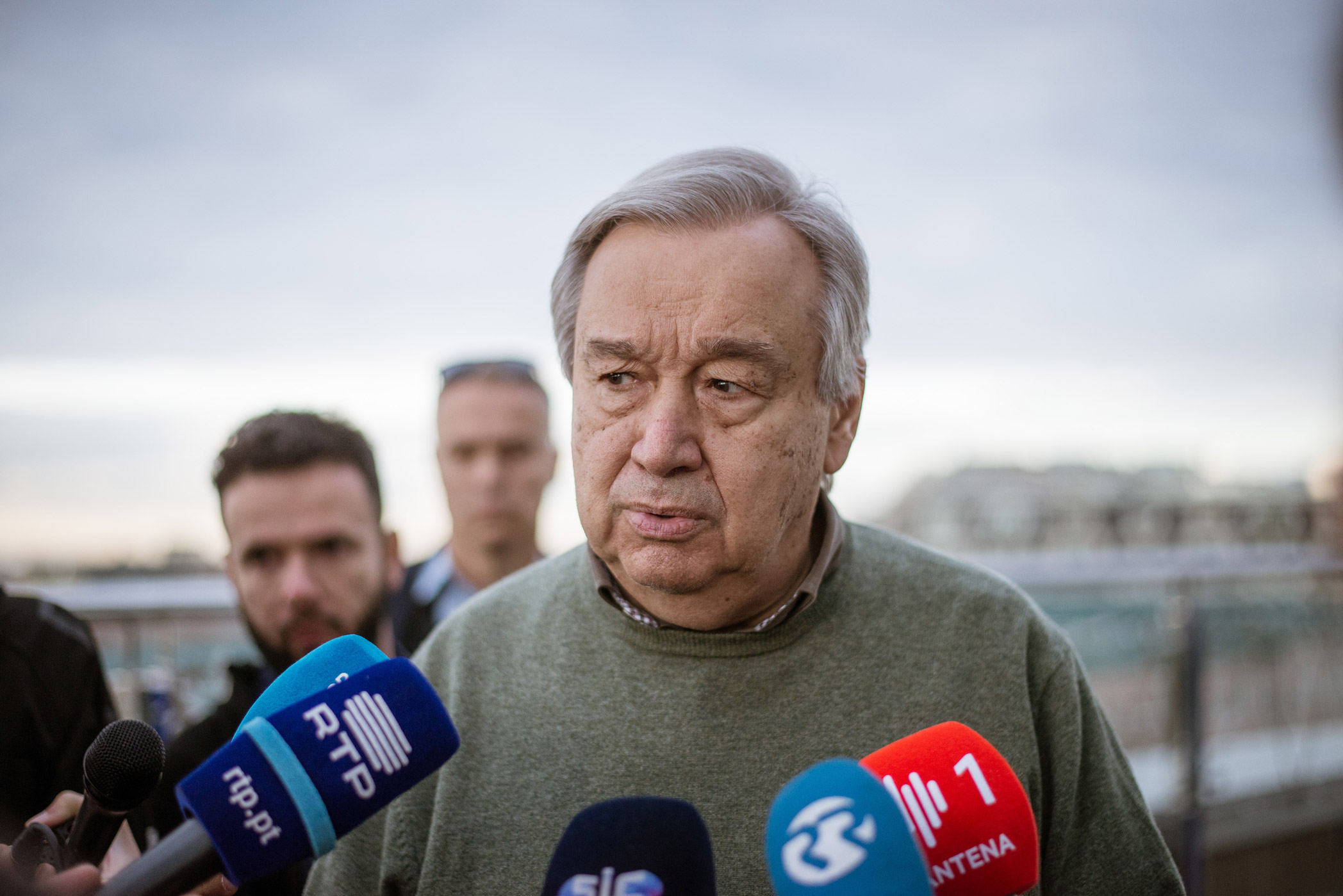
The war in Ukraine will continue until "Russia decides to end it," the United Nations Secretary-General António Guterres told CNN on Wednesday.
"The war will not end with meetings,” he told CNN's Anderson Cooper during a wide-ranging interview. "The war will end when the Russian Federation decides to end it and when there is – after a ceasefire – a possibility of a serious political agreement. We can have all the meetings but that is not what will end the war."
On Tuesday, Guterres traveled to Moscow for a one-on-one meeting with Russian President Vladimir Putin to discuss “proposals for humanitarian assistance and the evacuation of civilians” from conflict zones, namely the besieged city of Mariupol, according to a UN readout of the discussion.
As a result, Putin agreed “in principle” to allow the UN and the International Committee for the Red Cross to assist in the evacuation of citizens from the Azovstal plant in Mariupol, the last bastion of Ukrainian defense in the city.
Asked what role the UN intended to play in the investigations of war crimes allegedly carried out by Russian forces in the town of Bucha on the outskirts of Kyiv, Guterres reiterated his calls for an "independent investigation."
Some context: The Kremlin has denied any involvement in the mass killings of civilians in Ukraine while reiterating baseless claims that images of bodies on the streets of Bucha are "fake."
Evidence of mass graves in the towns of Bucha and Borodianka has continued to emerge since early April, following the withdrawal of Russian forces from the Kyiv region.
Analysis: How the widening war in Ukraine will cost the world
From CNN's Stephen Collinson
The vicious epicenter of the war in Ukraine now rests in the scorched cities of the east and the south. But the conflict's reverberations are widening in a way that will leave few people on Earth -- from small-town America to poverty-stricken Africa -- untouched.
Many wars, from World War I to the conflict in Iraq, at first seem certain to end quickly with a short, violent shock. But often they confound such predictions, degenerating into protracted slogs with domino effects that cause distant and far-reaching political, economic and humanitarian effects.
Russia's war on Ukraine is following this pattern. After starting with predictions of a blitzkrieg to seize Kyiv two months ago, the war is set to drag on for weeks and months, if not longer.
The consequences of a war that lasts even that long are grave.
Given Russian President Vladimir Putin's vicious assault on civilians, it will mean many more Ukrainian dead and almost inevitably more atrocities and war crimes. There will be an ever-present danger of the war spilling over and causing a wider conflagration — both militarily and in a growing showdown over Russia's energy exports, which Europe badly needs.
Any time two nuclear powers as large as Russia and the US are locked in even an indirect conflict, as is the case given Washington's massive injection of arms into Ukraine, the possibility of a direct confrontation remains.
And a longer war means more uncertainty for Western leaders.
Read more here:
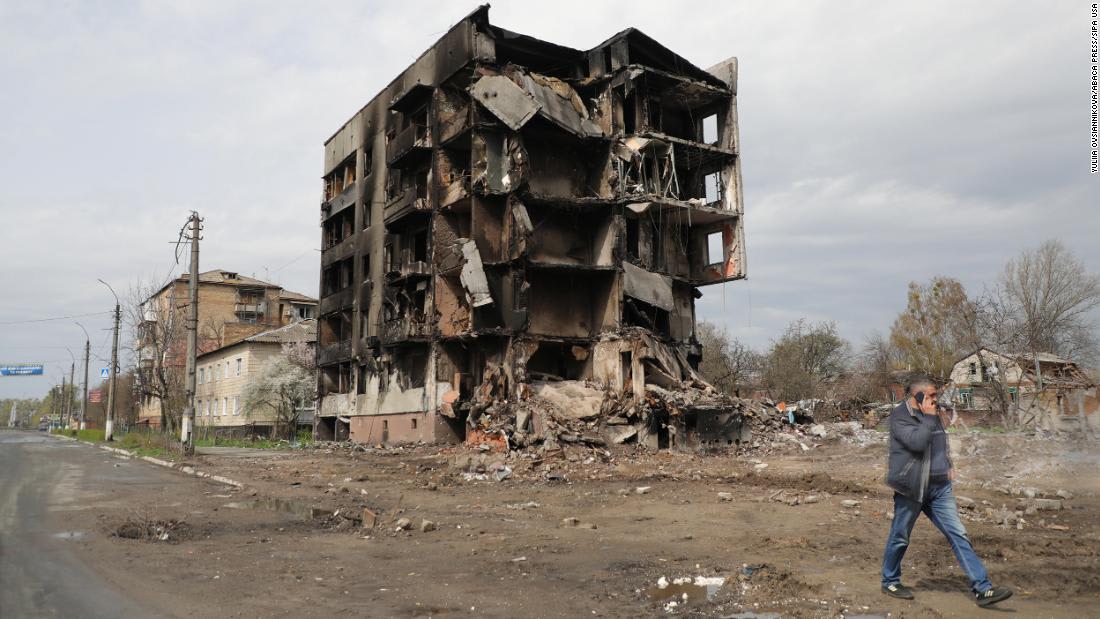
UN chief says his meeting with Putin was "very useful"
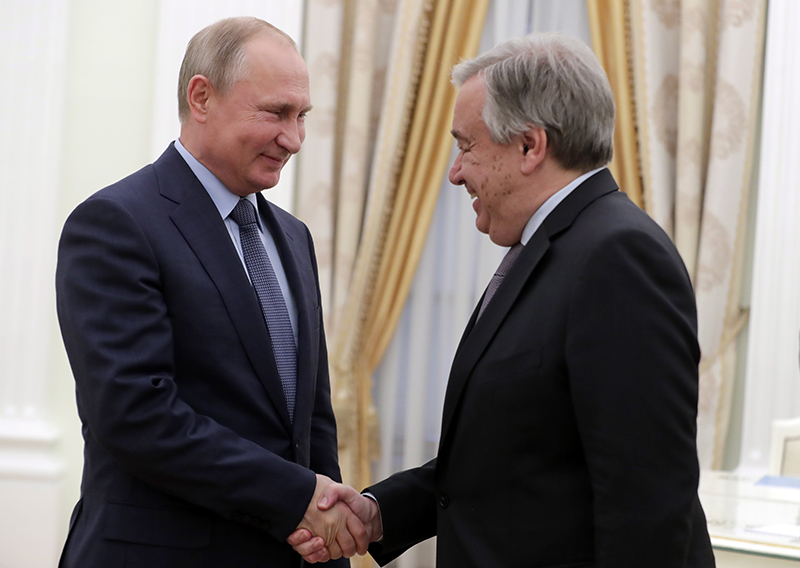
In his face-to-face meeting with Russian President Vladimir Putin, the UN Secretary-General António Guterres said his message was unchanged from the start of the conflict: The Russian invasion is a breach of the UN Charter and it must end as quickly as possible.
Guterres, who is expected to meet Ukrainian President Volodymyr Zelensky on Thursday, described his encounter with the Russian leader as “very useful.”
The secretary-general told CNN’s Anderson Cooper that he expressed his concerns about the violations of international law, human rights law and the “possibility of war crimes.”
Guterres defended the role of the UN in terms of bringing an end to the two-month-old conflict.
“The war will not end with meetings,” he said. “The war will end when the Russian Federation decides to end it and when there is – after a ceasefire – a possibility of a serious political agreement. We can have all the meetings but that is not what will end the war.”
During the meeting with Putin, Guterres said he discussed the evacuation of civilians from the steel factory encircled in the southern port city of Mariupol.
He said Putin agreed “in principle” on the evacuation of civilians and that discussions were taking place between UN officials and Russia’s ministry of defense to hammer out the details.
“We are also in contact with the government of Ukraine to see if we can have a situation in which nobody can blame the other side for things not happening,” he said.
It's 7 a.m. in Kyiv. Here's what you need to know
Poland and Bulgaria are receiving gas from their EU neighbors, said European Commission President Ursula von der Leyen, after Russian energy giant Gazprom halted supplies Wednesday when the two countries refused to pay in rubles. Von der Leyen described the Russian move as "blackmail." Another EU member, Hungary, said it will use the payment scheme put in place by Moscow to pay for its oil and gas.
Here are the latest developments:
Putin issues warning: President Vladimir Putin warned that any country interfering in Ukraine would be met with a “lightning-fast” response from Russia. “We have all the tools for this — ones that no one can brag about. And we won't brag. We will use them if needed. And I want everyone to know this,” he told lawmakers in St. Petersburg.
Worry about Transnistria: Ukrainian officials have been talking about the risk of another front in the conflict with Russia opening up — along the border with Moldova in the southwest. Part of the Moldovan border region is controlled by a pro-Russian administration in what's called Transnistria.
US-Russia exchange prisoners: American Trevor Reed, a US citizen and former Marine who had been detained in Russia since 2019, was released in a prisoner swap for Russian citizen Konstantin Yaroshenko. Reed's release will not impact the US approach to the war in Ukraine, senior administration officials said.
Russian tanks' costly flaw: Hundreds of Russian tanks are thought to have been destroyed since Moscow launched its offensive in Ukraine. Experts say battlefield images show the tanks are suffering from a defect that Western militaries have known about for decades and refer to as the "jack-in-the-box effect." Moscow, they say, should have seen the problem coming.
Ukrainians allegedly executed while surrendering: The US said it has credible information that a Russian military unit executed Ukrainians who were attempting to surrender near Donetsk. "If true, this would be a violation of a core principle of the laws of war," Ambassador-at-Large for Global Criminal Justice Beth Van Schaack said at the United Nations.
Surge in sponsorship applications: More than 4,000 applications were filed to sponsor Ukrainians seeking to come to the US within 48 hours of the Biden administration launching its streamlined process for those fleeing Ukraine, a spokesperson for the US Citizenship and Immigration Services told CNN.
Kherson region of Ukraine will transition to ruble from May 1: Russian state media
From CNN's Masha Angelova
The Russian-occupied Kherson region of Ukraine will transition to using the ruble from May 1, according to Russian state media.
The Deputy Chairman of the Civil-Military Administration of the region, Kirill Stremousov, told the RIA-Novosti news agency that the transition period will take up to four months during which both the Russian ruble and the Ukrainian hryvnia will be in circulation. After that, there will be a full transition to the ruble.
CNN was unable to independently verify Stremousov’s statement.
Some context: Previous CNN reporting confirmed that Russian forces had installed a new local government in Kherson on Tuesday.
The installation took place days after Russian forces took control of the Kherson City Council building, removing the elected government and replacing its security with Russian military troops.
Russia's tanks in Ukraine have a "jack-in-the-box" design flaw
From CNN's Brad Lendon
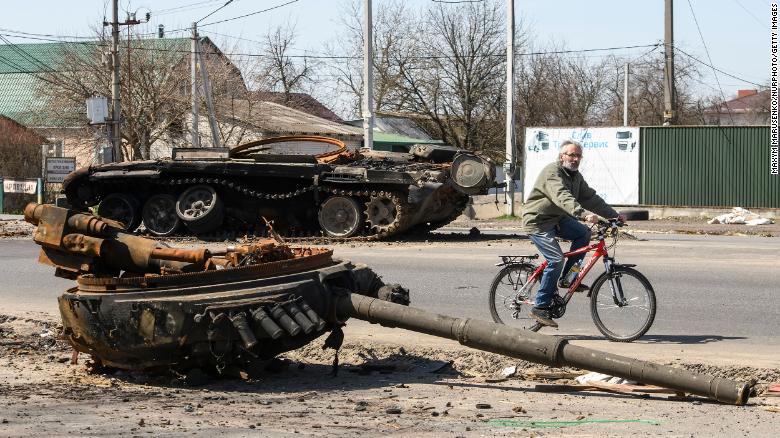
Russian tanks with their tops blown off are just the latest sign that Russia's invasion of Ukraine isn't going to plan.
Hundreds of Russian tanks are thought to have been destroyed since Moscow launched its offensive, with British Defense Secretary Ben Wallace on Monday estimating it had lost as many as 580.
But Moscow's problems go beyond the sheer number of tanks it has lost. Experts say battlefield images show Russian tanks are suffering from a defect that Western militaries have known about for decades and refer to as the "jack-in-the-box effect." Moscow, they say, should have seen the problem coming.
The problem relates to how the tanks' ammunition is stored. Unlike modern Western tanks, Russian ones carry multiple shells within their turrets. This makes them highly vulnerable as even an indirect hit can start a chain reaction that explodes their entire ammunition store of up to 40 shells.
The resulting shockwave can be enough to blast the tank's turret as high as a two-story building, as can be seen in a recent video on social media.
Read more here.
US has credible information that Russian military executed Ukrainians who attempted to surrender, official says
From CNN's Rob Frehse
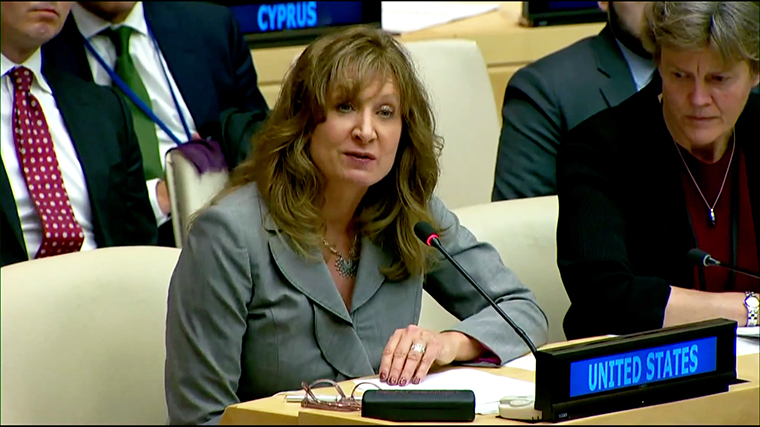
The United States has credible information that a Russian military unit executed Ukrainians who were attempting to surrender near Donetsk, Ambassador-at-Large for Global Criminal Justice Beth Van Schaack said at the United Nations Wednesday.
“We now have credible information that a Russian military unit operating in the vicinity of Donetsk executed Ukrainians who were attempting to surrender, rather than take them into custody,” Van Schaak said. “If true, this would be a violation of a core principle of the laws of war: the prohibition against the summary execution of civilians and combatants who are hors de combat by virtue of surrender, injury, or other forms of incapacitation.”
Van Schaak also said the US has “credible reports of individuals killed execution-style with their hands bound; bodies showing signs of torture; horrific accounts of sexual violence against women and girls.”
“These images and reports suggest that atrocities are not the result of rogue units or individuals; they, rather, reveal a deeply disturbing pattern of systematic abuse across all areas where Russia’s forces are engaged,” Van Schaak added.
“Let us be clear: those who unleashed, perpetrated, and ordered these crimes must be held to account and the evidence of this criminality is mounting daily,” Van Schaak said. “Our simple message to Russia’s military and political leadership, and file is this: the world is watching, and you will be held accountable.”
The United States welcomes the ICC investigation into atrocities committed in Ukraine, Van Shaak said, referencing the common goal of stakeholders to achieve justice.
“The United States is supporting a range of international investigations into atrocities in Ukraine. This includes those conducted by the International Criminal Court, the UN and the Organization for Security and Cooperation in Europe," she said.
Hungarian foreign minister confirms to CNN that his country will use Russia’s energy payment scheme
From CNN's Pamela Boykoff
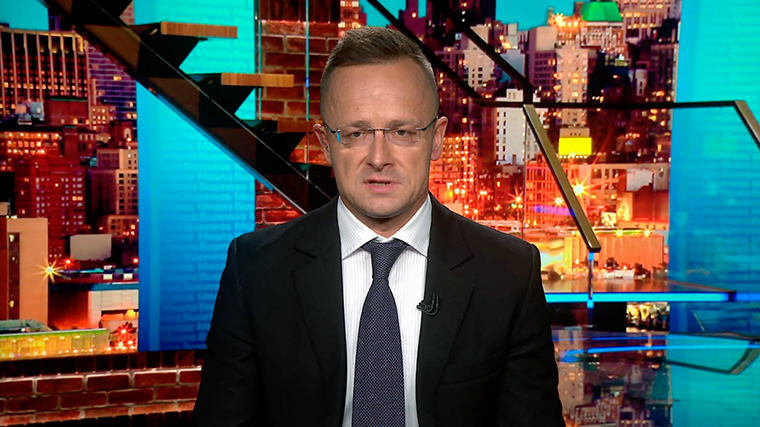
The Hungarian Foreign Minister confirmed to CNN that his country will use the payment scheme put in place by Moscow to pay for its oil and gas.
Defending this decision, Foreign Minister Péter Szijjártó said:
“85% of our gas supply comes from Russia, and 65% of our oil supply comes from Russia. Why? Because this is being determined by infrastructure. This is not for fun, we have not chosen the situation,” he told CNN’s Richard Quest.
Szijjártó said there are no alternative sources or routes which makes it possible for them to stop importing Russian energy in the next few years.
Under the Russian payment scheme, energy importers have had to open two bank accounts with Gazprombank — a foreign currency account and a rubles account. The proceeds of sales are paid in foreign currency (dollars or euros) which is then converted by Gazprombank into the ruble account.
Several other countries are reportedly using the scheme. A European Commission document release last week advised that it “appears possible” to comply with the new Russian rules without getting into conflict with EU law.
Sanctions experts say the Russian payment system allows Moscow access to energy proceeds regardless of the sanctions in place on foreign currencies.
CNN’s Richard Quest notes two things — the entire process is extremely legally murky and the scheme also gives Putin the political advantage — that he is forcing the companies into his scheme to pay in rubles.
Ukraine concerned about provocations in pro-Russian region of Moldova
From CNN's Tim Lister and Julia Presniakova
Ukrainian officials have been talking about the risk of another front in the conflict with Russia opening up — along the border with Moldova in the southwest.
Part of the Moldovan border region is controlled by a pro-Russian administration in what's called Transnistria. Unexplained explosions there earlier this week prompted Ukrainian officials to allege that Russia's security services were planning provocations in Transnistria as a pretext to open up a new front in the war.
Mykhailo Podoliak, an advisor to President Volodymyr Zelensky, told Ukrainian television Wednesday: "We have always considered Transnistria as a springboard from which there may be some risks for us, for [the] Odesa and Vinnytsia regions."
There is a certain [military] contingent of Russians, it is somewhere between 1,500-2,000 people, of which only 500-600 are Russians," Podoliak said.
But he said that most people in Transnistria were integrated into Moldova and Europe.
"Therefore, for Transnistria, active involvement in the conflict in Ukraine will practically mean total isolation and destruction of the enclave," Podoliak noted.
Podoliak suggested that through the incidents this week in Transnistria, Russia was trying to provoke Ukraine.
Roman Kostenko, a member of the Ukrainian parliament from Odesa, said Transnistria did not pose a strategic threat to Ukraine.
"It could be a tactical threat, in some direction, in order to bind our troops," the official said.
Kostenko said the Russians were counting on Transnistria as "another front that could directly support them when they attack, for example, Mykolayiv, Odesa from the sea, because Mykolayiv blocks the land corridor."
Ukrainian defenses around the city of Mykolaiv have prevented Russian forces from reaching Odesa overland.
The far southwest corner of Ukraine is now cut off from the rest of the country after a road and rail bridge over the estuary of the river Dniester was struck by a second cruise missile Wednesday after first being hit Tuesday. Russia has not said it carried out the missile strike.
Ukraine's Southern Military Command claimed that Russian submarines continued to threaten missile strikes from the Black Sea. "Enemy forces are also preparing provocations with missile strikes on Transnistria to accuse Ukraine of attacking the unrecognized republic," it said.

 Landwebs
Landwebs 







